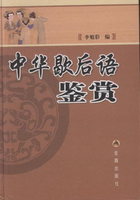Thus, these misguided people fancy that they are exercising their rights, and obeying the will of the King." -- The effect of sonorous phrases is apparent. The people have been told that the States-General were to bring about the "regeneration of the kingdom"The inference is "that the date of their assembly was to be one of an entire and absolute change of conditions and fortunes." Hence, "the insurrection against the nobles and the clergy is as active as it is widespread." "In many places it was distinctly announced that there was a sort of war declared against landowners and property,"and "in the towns as well as in the rural districts the people persist in declaring that they will pay nothing, neither taxes, duties, nor debts." -- Naturally, the first assault is against the piquèt, or flour-tax. At Aix, Marseilles, Toulon, and in more than forty towns and market-villages, this is summarily abolished; at Aupt and at Luc nothing remains of the weighing-house but the four walls. At Marseilles the home of the slaughter-house contractor and at Brignolles that of the director of the leather excise, are sacked. The determination is "to purge the land of excise-men. " -- This is only a beginning; bread and other provisions must become cheap, and that without delay. At Arles, the Corporation of sailors, presided over by M. de Barras, consul, had just elected its representatives. By way of conclusion to the meeting, they pass a resolution insisting that M. de Barras should reduce the price of all comestibles. On his refusal, they "open the window, exclaiming, 'We hold him, and we have only to throw him into the street for the rest to pick him up.'" Compliance is inevitable. The resolution is proclaimed by the town-criers, and at each article which is reduced in price the crowd shout, "Vive le Roi, vive M. Barras !" -- One must yield to brute force. But the inconvenience is great for, through the suppression of the flour-tax, the towns have no longer a revenue. On the other hand, as they are obliged to indemnify the butchers and bakers, Toulon, for instance, incurs a debt of 2,500livres a day.
In this state of disorder, woe to those who are under suspicion of having contributed, directly or indirectly, to the evils, which the people endure! At Toulon a demand is made for the head of the mayor, who signs the tax-list, and of the keeper of the records. They are trodden under foot, and their houses are ransacked. At Manosque, the Bishop of Sisteron, who is visiting the seminary, is accused of favoring a monopolist. On his way to his carriage, on foot, he is hooted and menaced. He is first pelted with mud, and then with stones. The consuls in attendance, and the sub-delegate, who come to his assistance, are mauled and repulsed. Meanwhile, some of the most furious begin, before his eyes, "to dig a ditch to bury him in." Protected by five or six brave fellows, amidst a volley of stones, and wounded on the head and on many parts of his body, he succeeds in reaching his carriage. He is finally only saved because the horses, which are likewise stoned, run away. Foreigners, Italians, bandits, are mingled with the peasants and artisans, and expressions are heard and acts are seen which indicate a jacquerie.[30] "The most excited said to the bishop, 'we are poor and you are rich, and we mean to have all your property.'"[31]
Elsewhere, "the seditious mob exacts contributions from all people in good circumstances. At Brignolles, thirteen houses are pillaged from top to bottom, and thirty others partly half. -- At Aupt, M.
de Montferrat, in defending himself, is killed and "hacked to pieces." -- At La Seyne, the mob, led by a peasant, assembles by beat of drum. Some women fetch a bier, and set it down before the house of a leading bourgeois, telling him to prepare for death, and that "they will have the honor of burying him." He escapes; his house is pillaged, as well as the bureau of the flour-tax. The following day, the chief of the band "obliges the principal inhabitants to give him a sum of money to indemnify, as he states it, the peasants who have abandoned their work," and devoted the day to serving the public. -- At Peinier, the Président de Peinier, an octogenarian, is "besieged in his chateau by a band of a hundred and fifty artisans and peasants," who bring with them a consul and a notary. Aided by these two functionaries, they force the president "to pass an act by which he renounces his seignorial rights of every description " -- At Sollier they destroy the mills belonging to M.
de Forbin-Janson. They sack the house of his business agent, pillage the chateau, and demolish the roof, chapel, altar, railings, and escutcheons. They enter the cellars, stave in the casks, and carry away everything that can be carried, "the transportation taking two days;" all of which cause damages of a hundred thousand crowns to the marquis. -- At Riez they surround the episcopal palace with fagots, threatening to burn it, "and compromise with the bishop on a promise of fifty thousand livres," and want him to burn his archives. -- In short, the sedition is social for it singles out for attack all that profit by, or stand at the head of, the established order of things.
Seeing them act in this way, one would say that the theory of the Contrat-Social had been instilled into them. They treat magistrates as domestics, promulgate laws, and conduct themselves like sovereigns. They exercise public power, and establish, summarily, arbitrarily, and brutally, whatever they think to be in conformity with natural right. -- At Peinier they exact a second electoral assembly, and, for themselves, the right of suffrage. -- At Saint-Maximin they themselves elect new consuls and officers of justice.















